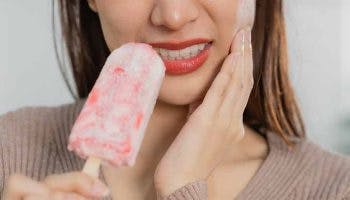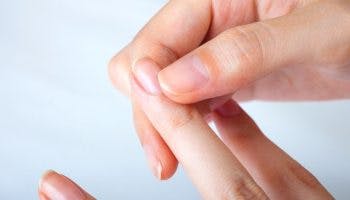Reviewed by Dr Jessica Gunawan, Physician Ho Li Ying and Physician Wong Si Xuan
Real-Life Stories of Sleep-Deprived Adults
Published | 7 min read
Real stories of sleep deprived adults demonstrate the problem’s negative effects. It may also inspire you to practice habits that boost sleep quality daily.
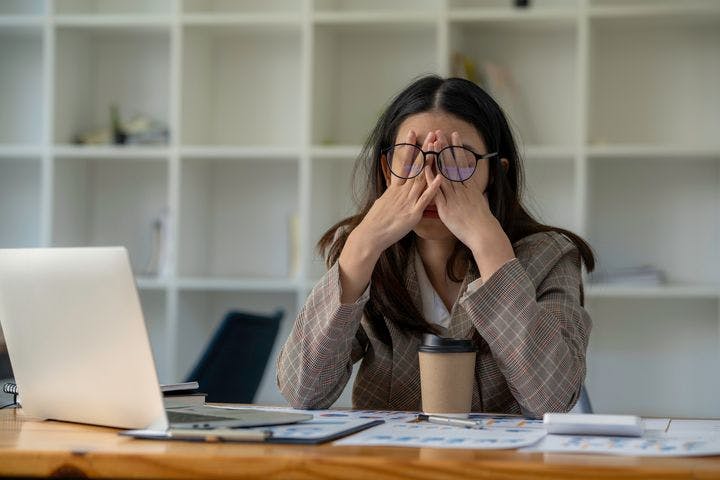
Sleep is fundamental to holistic wellness. Getting enough shut-eye
Over time, it can increase your risk of developing some serious health issues. To help you understand just how bad it can get, here are two first-hand accounts of people who struggled to get quality sleep, and how it impacted their daily lives.
“Dozing off at the wheel nearly cost me my life” – Alex, 35
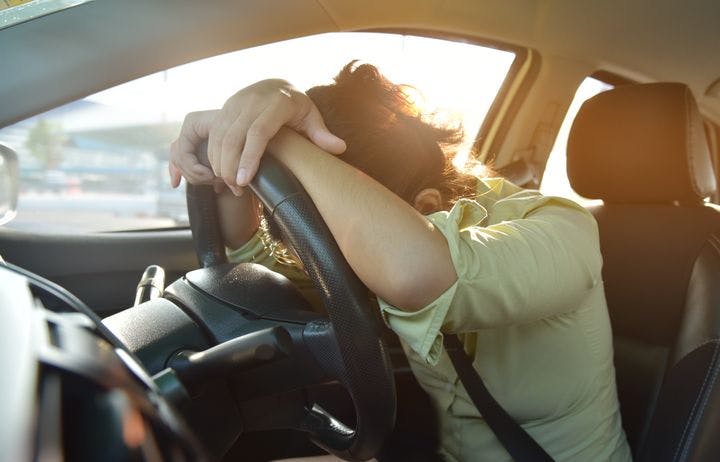
Working full-time as a software solutions Project Manager meant two things for Alex – he was in for long hours of work, and
“I used to fall asleep at my work desk and struggle to focus during meetings. Going through severe exhaustion, I couldn’t even manage to stay at the wheel for 20 minutes at a time. Sometimes, I needed to stop by the side of the road to take a nap before continuing on my journey. Twice, I met in accidents because I fell asleep while driving. I was lucky to survive both times, but I knew I needed to treat the problem, and fast.”
– Alex
He then sought the help of a specialist, who diagnosed him with severe obstructive
Fast forward three years, and Alex feels more refreshed than he used to be, is able to drive across states without feeling sleepy, and has even lost 20 kilogrammes within a six-month period!
“I only fall asleep after the sun rises for the past decade!” – Sushil, 40
Ten years can feel like a hundred, especially if you’re sleep deprived. And that’s exactly how it is for Sushil, a Marketing Executive, who frequently finds himself falling asleep when most people are awake and starting their day.
Citing a personal struggle with anxiety and stress, he has turned to exercise and relaxation techniques to improve his sleep quality. These methods helped at times, but a scepticism towards clinical medication prevented addressing the root cause of his sleep deprivation.
As a result, there are days when his body completely shuts down on him. It has also been hard for him to get to work early, and to maintain a high energy output throughout the day.
Reasons Why Some People are More Sleep Deprived than Others
Sleep deprivation comes in two forms – acute and chronic. Acute sleep deprivation may last for only a few days, but chronic sleep deprivation can extend over a period of three months or longer.
Essentially, they are one and the same, as both types are the result of each person’s own obligations and lifestyle choices.
Putting off bedtime

Revenge bedtime procrastination is extremely common among people who feel the need to regain personal time by delaying night-time sleep. It may seem gratified, but it actually results in them staying up later than they’re supposed to.
Doing the graveyard shift
Working a night shift makes your circadian rhythm chaotic and deprives you of sleep. The findings of a study revealed that night shift workers slept six hours lesser every week than day-shift workers.
The same study also learned that night shift work suppresses your body’s nocturnal melatonin – a type of hormone that controls your sleep cycle – secretion.
Experiencing sleep-related disorders
Snoring, sleep apnoea, or periodic limb movement disorder – a repetitive movement of the arms, legs, or both limbs during sleep – prevents you from getting quality sleep every night.
Interestingly, sleep deprivation also induces snoring by causing a relaxation of the throat muscles. Chest pain, loud snoring, choking or gasping for air during sleep can also be a sign of sleep apnoea.
Experiencing respiratory or psychological illnesses
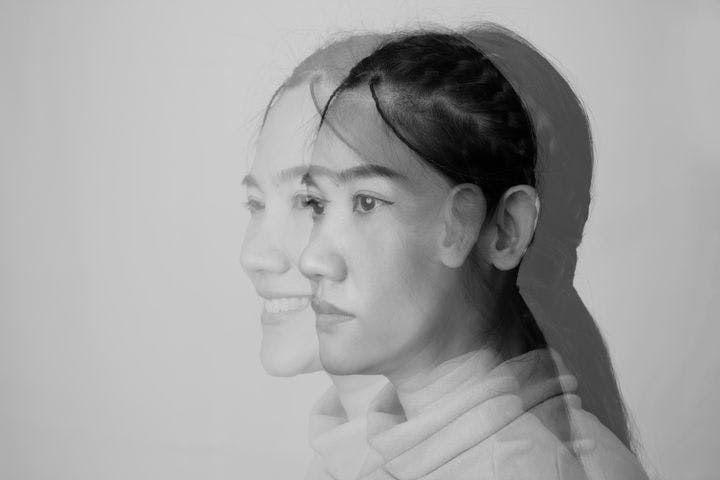
Coughing or gagging are symptoms of colds and tonsilitis, and can wake you up frequently throughout the night.
Recent studies have also found that sleep disorders are both the cause and effect of various mental health conditions. Sleeping less can worsen anxiety, depression, and manic bipolar disorder episodes.
At the same time, it may be a symptom of schizophrenia, attention-deficit/hyperactivity disorder (ADHD), and autism spectrum disorder (ASD).
Developing internal imbalances
Traditional Chinese Medicine (TCM) believes that pathogenic factors, negative emotions, and lifestyle choices are the reasons why we’re sleep deprived.
Poor sleep is associated with
Eu Yan Sang Physician Ho Li Ying
What are the Negative Effects of Sleep Deprivation?
The lesser you sleep, the more likely you are to experience negative consequences, such as:
- Fatigue
- Dizziness
- Headaches
- Poor decision-making
- Microsleep episodes
- Shorter attention span
- Irritability and a bad temper
- Reduced focus and concentration levels
- Making mistakes that directly affect a workflow process
Clinical and Natural Methods to Improve Sleep Quality
Taking a more positive and healthy approach to life can help improve your sleep tenfold. Exercise for 20-to-30 minutes, five to six hours before going to bed. Avoid alcoholic and caffeinated beverages. Quit smoking.
These may appear easier said than done, but isn’t having sleeping better than endless nights of bedtime procrastination?
You may undergo light therapy to readjust your sleep-wake cycle, especially if your lack of sleep isn’t a symptom of a health condition. Sleeping pills can also help, but eventually becomes less effective after several weeks.
A CPAP machine, meanwhile, provides an uninterrupted flow of air through a mask, thus helping to keep your airway open as you sleep.
Traditional Remedies to Improve Sleep Quality
Eat and drink your way to better sleep by including herbal remedies in dessert, porridge, soup, and tea preparations. These include:
- Chinese yam (shan yao, 山药).
- Lily bulbs (bai he, 百合)
- Lotus seeds (lian zi, 莲子)
- Sour jujube seeds (suan zao ren, 酸枣仁)
- Tuber fleeceflower stem (ye jiao teng, 夜交藤)
Physician Ho also recommends using a Chinese Four Herbs soup
To help you unwind and improve sleep quality, you may also consume a wholesome drink made from a blend of vinegar, spine dates, and walnut membrane.
These stories show just how important sleep is. To live life to the fullest, we urge you to practice the tips mentioned above. However, it’s best that you consult a licensed TCM practitioner before including the suggested herbal ingredients in your diet. If you’ve personally faced difficulties falling asleep, we’d love to know about your experiences in the comments section below.
References
- Sleep Foundation. 2022. Eight Health Benefits of Sleep. [online] [Accessed 9 February 2023]
- Sleep Foundation. 2022. Sleep Deprivation. [online] [Accessed 9 February 2023]
- Wired. 2021. Why You Stay Up So Late, Even When You Know You Shouldn’t. [online] [Accessed 9 February 2023]
- National Library of Medicine. 2022. Effect of night-shift work on cortisol circadian rhythm and melatonin levels. [online] [Accessed 9 February 2023]
- Sydney Centre for TMJ & Sleep Therapy. The Link Between Snoring and Sleep Deprivation. [online] [Accessed 9 February 2023]
- Better Health Channel. Sleep deprivation. [online] [Accessed 9 February 2023]
- Sleep Foundation. 2023. Mental Health and Sleep. [online] [Accessed 9 February 2023]
- Cedars Sinai. Sleep Deprivation. [online] [Accessed 9 February 2023]
Share this article on

